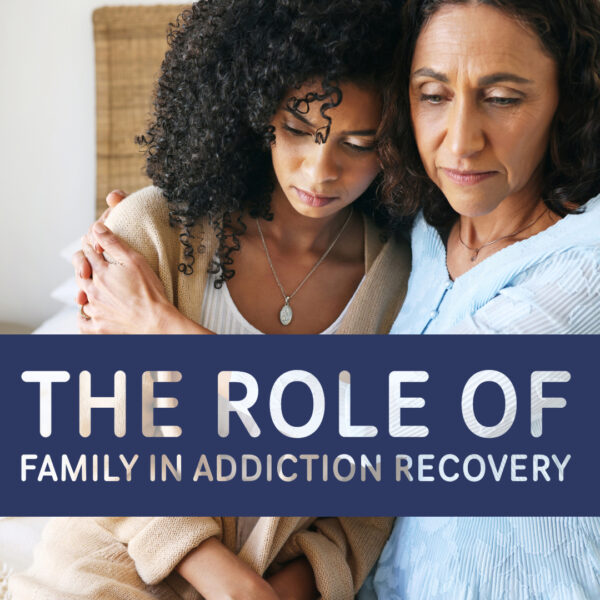Introduction
Addiction doesn’t just affect the individual; it impacts the entire family. The strain on relationships, the emotional turmoil, and the financial burden can be overwhelming. However, family support plays a crucial role in the recovery process. When families unite to support their loved ones, the chances of successful recovery significantly increase.
Understanding Addiction and Family Dynamics
How Addiction Affects Family Relationships
Addiction can drastically alter family dynamics. Trust is often broken, and communication becomes strained. Family members may feel helpless, angry, or even guilty about their loved one’s addiction. These emotional challenges can create a cycle of dysfunction that is hard to break.
Common Dysfunctional Roles in Families Dealing with Addiction
Families coping with addiction often develop specific roles to manage the chaos. Understanding these roles can help in breaking the cycle and fostering healthier dynamics.
1. The Enabler
The enabler often tries to protect the addicted family member from the consequences of their actions. They might make excuses, cover up mistakes, or provide financial support. While their intentions are usually good, enabling behavior can perpetuate the addiction.
2. The Scapegoat
The scapegoat is often blamed for the family’s problems. This role can deflect attention from the real issue—the addiction. The scapegoat may act out or rebel, further distracting the family from addressing the addiction.
3. The Hero
The hero tries to bring a sense of normalcy and pride to the family. They often excel in various areas to compensate for the chaos caused by addiction. While their achievements are commendable, this role can lead to immense pressure and feelings of inadequacy.
The Importance of Family Support in Recovery
Improved Treatment Outcomes
Family support significantly enhances treatment outcomes. When family members actively participate in the recovery process, individuals feel more motivated and supported. This involvement can make a huge difference in their commitment to the treatment program.
Reduced Relapse Rates
A supportive family can help reduce the risk of relapse. Knowing that loved ones are invested in their recovery can encourage individuals to stay on track. Families can also help identify early signs of relapse and intervene before the situation escalates.
Emotional Support and Stability
Recovering from addiction is an emotional journey. Family members can provide a stable and loving environment, offering emotional support during challenging times. This stability is crucial for long-term recovery.
Ways Families Can Support Recovery
Encouraging Treatment Entry and Adherence
Families can play a pivotal role in encouraging their loved ones to enter and stick with treatment. Gentle persuasion, understanding, and unwavering support can help break down resistance and foster a commitment to recovery.
Providing Emotional Support
Emotional support is vital for someone recovering from addiction. Simple gestures like listening, expressing empathy, and showing love can make a big difference. Knowing they have a support system can help individuals feel less isolated and more hopeful.
Helping Maintain Accountability
Families can help maintain accountability by setting clear expectations and boundaries. Regular check-ins and open communication can help ensure the individual remains focused on their recovery goals.
Creating a Healthy Home Environment
A healthy home environment is crucial for recovery. Families can support this by promoting a substance-free home, encouraging healthy habits, and fostering a positive atmosphere. This nurturing environment can help individuals feel safe and supported in their recovery journey.
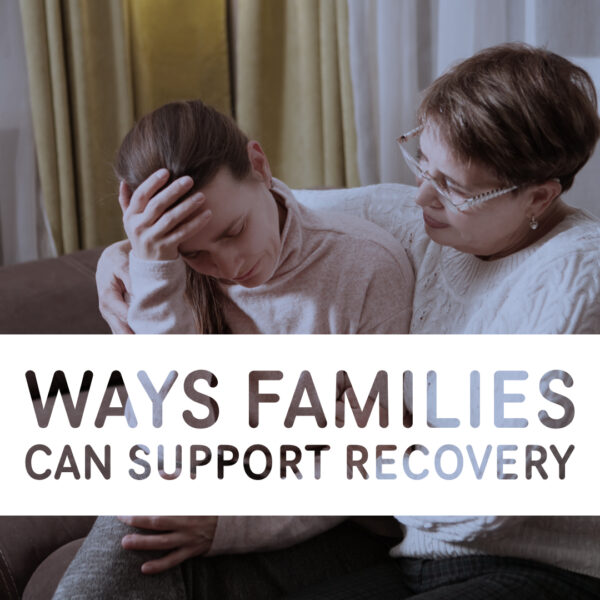
Family Involvement in Treatment
Family Therapy Sessions
Family therapy sessions are a crucial component of addiction treatment. These sessions provide a safe space for family members to express their feelings, address conflicts, and rebuild trust. They also help families understand addiction and learn how to support their loved one effectively.
Educational Programs for Families
Educational programs equip families with the knowledge and tools they need to support their loved one’s recovery. These programs often cover topics such as understanding addiction, communication strategies, and coping mechanisms. Being well-informed can make a significant difference in the recovery process.
Benefits of Family Participation in Treatment
Family participation in treatment offers numerous benefits. It fosters a sense of unity and shared responsibility, improves communication, and helps address underlying family issues. When families are involved, the individual in recovery is more likely to feel supported and understood.
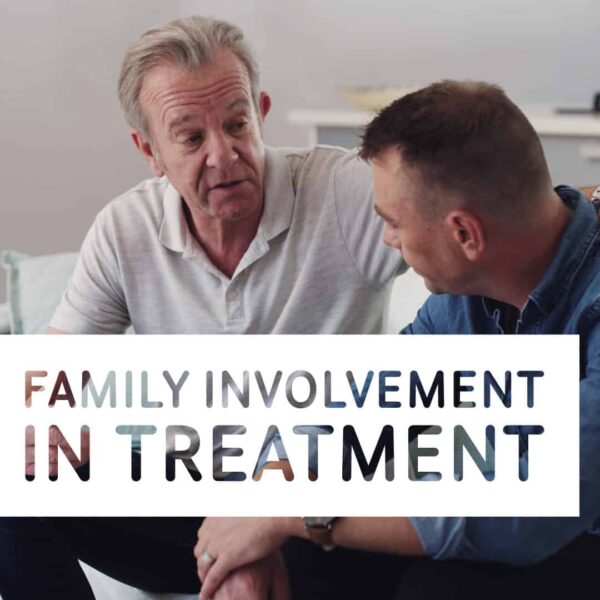
Building a Supportive Family Environment
Setting Healthy Boundaries
Setting healthy boundaries is essential for both the individual in recovery and their family members. Boundaries help define acceptable behaviors and ensure that everyone’s needs are respected. Clear boundaries can prevent enabling behaviors and promote a healthier dynamic.
Avoiding Enabling Behaviors
Enabling behaviors, though often well-intentioned, can hinder recovery. Families need to recognize and avoid actions that protect the individual from the consequences of their addiction. Instead, they should encourage responsibility and accountability.
Fostering Open and Honest Communication
Open and honest communication is the cornerstone of a supportive family environment. Encouraging family members to express their feelings and concerns without judgment can strengthen relationships and build trust. This transparency is vital for a successful recovery journey.
Addiction as a “Family Disease”
The Need for Healing for All Family Members
Addiction affects everyone in the family, not just the individual struggling with substance abuse. Therefore, healing must extend to all family members. Addressing the emotional wounds and traumas experienced by family members can foster a more supportive environment and promote overall family well-being.
Addressing Underlying Family Issues
Often, addiction is a symptom of deeper family issues. Unresolved conflicts, poor communication, and dysfunctional dynamics can contribute to the cycle of addiction. By addressing these underlying issues through therapy and open dialogue, families can break free from harmful patterns and support lasting recovery.
Long-term Recovery and Relapse Prevention
Family’s Role in Identifying Early Signs of Relapse
Families play a crucial role in relapse prevention. By staying vigilant and recognizing early signs of relapse—such as changes in behavior, mood swings, or withdrawal from family activities—families can intervene promptly. Early intervention can prevent a full relapse and keep the recovery journey on track.
Intervention Strategies for Families
Effective intervention strategies can make a significant difference in relapse prevention. Families can use approaches like motivational interviewing, setting clear expectations, and seeking professional guidance when needed. These strategies can help maintain sobriety and encourage ongoing commitment to recovery.
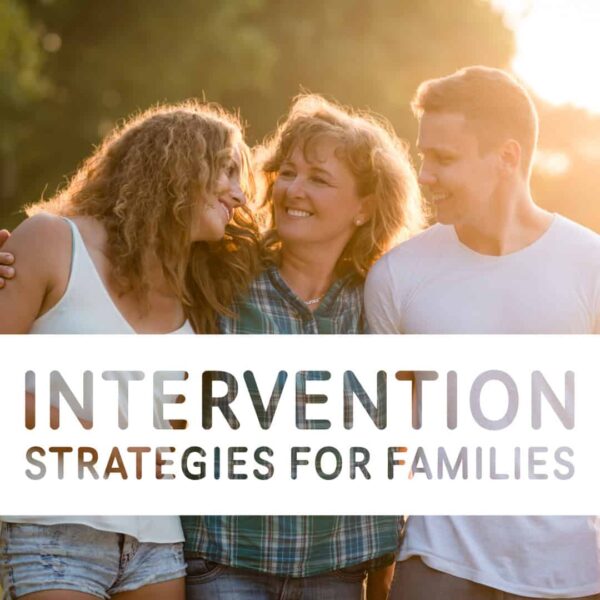
Maintaining Long-term Sobriety Through Family Support
Long-term sobriety requires ongoing support. Families can contribute by maintaining a substance-free environment, encouraging healthy lifestyle choices, and being involved in aftercare programs. Continuous support and positive reinforcement can help individuals stay focused on their recovery goals.
Resources for Families
Support Groups for Families
Support groups provide a platform for families to share experiences, gain insights, and find encouragement. Groups like Al-Anon and Nar-Anon offer support specifically for families of individuals struggling with addiction. These groups can be invaluable in helping families navigate the challenges of recovery.
Family Therapy Options in Utah
In Utah, there are numerous family therapy options available to support addiction recovery. These therapy sessions can address family dynamics, improve communication, and promote healing. For more information on family therapy options, you can explore our family therapy Utah services.
Educational Resources and Literature
Educational resources and literature can provide families with valuable knowledge about addiction and recovery. Books, articles, and online resources can help families understand the complexities of addiction and learn effective support strategies. Staying informed empowers families to be proactive in their loved one’s recovery journey.
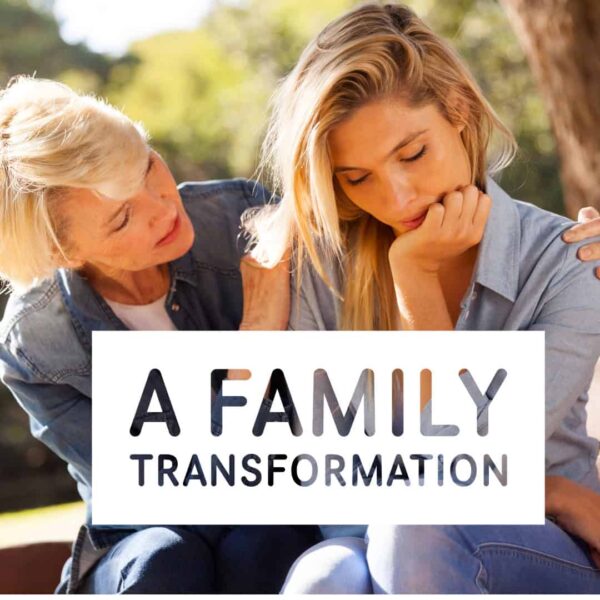
The Recovery Journey: A Family Transformation
Rebuilding Trust and Repairing Relationships
The recovery journey is not just about overcoming addiction; it’s also about rebuilding trust and repairing relationships within the family. Trust may have been broken during the period of addiction, but with time, honesty, and consistent effort, it can be restored. Families can work together to heal past wounds and strengthen their bonds.
Self-Care Strategies for Family Members
Supporting a loved one through addiction recovery can be emotionally taxing. It’s essential for family members to practice self-care to maintain their own well-being. Activities like exercise, meditation, and seeking support from friends or counselors can help family members manage stress and stay emotionally healthy.
Potential for Positive Family Growth and Change
While addiction can be devastating, the recovery process offers a unique opportunity for positive family growth and change. Families can emerge stronger, with improved communication, deeper empathy, and a renewed sense of unity. Embracing the recovery journey together can transform the entire family dynamic for the better.
Conclusion – Family support in addiction
Recap of the Importance of Family Support in Addiction Recovery
Family support is a cornerstone of successful addiction recovery. From providing emotional support and stability to participating in treatment and setting healthy boundaries, families play a vital role in their loved one’s journey to sobriety. Their involvement can significantly improve treatment outcomes and reduce the risk of relapse.
Encouragement for Families to Seek Professional Guidance and Support
Families don’t have to navigate the recovery journey alone. Professional guidance and support are available to help them every step of the way. By seeking out resources like family therapy, support groups, and educational programs, families can equip themselves with the tools they need to support their loved one’s recovery effectively.
For more information on addiction recovery support, check out our resources on rehab centers in Utah and explore how Liberty Addiction Recovery Centers can assist you and your family in this transformative journey.
If you have any questions or need further assistance, please feel free to contact us.
Family support in addiction – Frequently Asked Questions (FAQs)
1. How does family support impact addiction recovery?
Family support is crucial in addiction recovery because it provides emotional stability, improves treatment outcomes, and reduces relapse rates. Families can offer encouragement, help maintain accountability, and create a healthy home environment that fosters long-term sobriety.
2. What roles do family members often take on in families dealing with addiction?
In families dealing with addiction, members often assume specific roles such as:
- The Enabler: Protects the addicted individual from consequences.
- The Scapegoat: Is blamed for family problems, diverting attention from the addiction.
- The Hero: Strives to bring pride and normalcy to the family, often feeling immense pressure.
Understanding these roles can help families address underlying issues and support recovery more effectively.
3. How can families support a loved one in addiction recovery?
Families can support recovery by:
- Encouraging treatment entry and adherence.
- Providing emotional support.
- Helping maintain accountability.
- Creating a healthy, substance-free home environment.
Additionally, participating in family therapy and educational programs can equip families with the tools needed to support their loved one’s recovery.
4. What are some resources available for families of individuals in addiction recovery?
Families can access various resources such as:
- Support Groups: Al-Anon and Nar-Anon provide support for families.
- Family Therapy Options in Utah: Therapy sessions address family dynamics and promote healing.
- Educational Resources and Literature: Books, articles, and online resources offer valuable knowledge about addiction and recovery.
For more information, families can explore our family therapy options in Utah.
5. Why is addiction often referred to as a “family disease”?
Addiction is called a “family disease” because it affects every member of the family, not just the individual struggling with substance abuse. The emotional and psychological impact on family members necessitates healing for the entire family. Addressing underlying family issues through therapy and open communication is essential for breaking the cycle of addiction and fostering a supportive environment.

